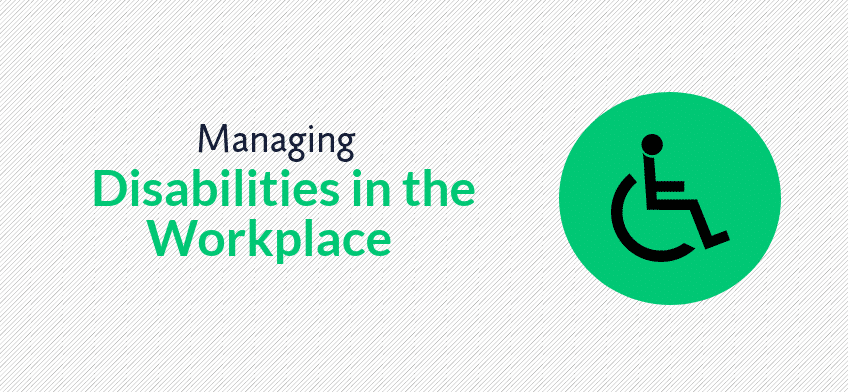
Managing Disabilities in the Workplace
Almost 4 million Australians are living with some form of disability. Depending on their individual circumstances, this can present challenges when participating in the workforce. Australian regulations make it unlawful to discriminate against someone on the basis of their disability. Equal employment opportunities must be made available to everyone, and there should never be unjust treatment surrounding those with disabilities in the workplace.
These anti-discrimination responsibilities begin at the recruitment stage, and extend throughout employment. This includes protection against different pay rates or conditions, different promotion or training opportunities, and dismissal procedures.
Notifying the business about a disability
Employees are only required to disclose their disability to their employer if it poses a risk to endanger themselves or colleagues, or if it affects their ability to perform the job requirements. For example, a person with epilepsy who is hired as a delivery driver would need to advise their employer.
While a person may want to keep their disability private, it is important to note that in some circumstances, not advising the business may affect Workers Compensation claims if the condition gets worse or causes another injury while on the job.
For employers, the Privacy Act prevents an employer disclosing someone’s disability to other parties. This includes a person’s colleagues, contractors, or people outside of the business.
Adjustments in the workplace
The federal Disability Discrimination Act (DDA) requires businesses to make ‘workplace adjustments’ if it essential for a person with a disability to carry out their work. For example, this may mean providing a sign language interpreter for a person with hearing impairment during the recruitment process. On the job, this could include modifying a desk for a person using a wheelchair, or providing specialised training or support for a person with an intellectual disability.
The federal government provides financial support to help cover the costs of adjustments in the workplace. This is provided under the Employment Assistance Fund for costs up to $30,000. Either the employee or the business can apply for the EAF. The funding covers physical adjustments to a workplace, (such as building or vehicle modifications), assistive technologies, awareness training, and AUSLAN support.
Unjustifiable hardship
The DDA does not require a business to make workplace adjustments where it would put the business in ‘unjustifiable hardship’. This may be because changes are too expensive, difficult, or time-consuming. It may also be because it would not be a solution to the problem. For example, it may be shown that even with adjustments made, the person would still be unable to carry out the requirements of the job.
However, if proposed adjustments are likely to cause hardship, the onus is on the employer to show the adjustments are unjustified. It is important for the business and the employee to have a positive and productive dialogue about potential solutions.
Discrimination law
The Australian Fair Work Act protects all employees, prospective employees, and contractors (among others) from discrimination. The FWA works alongside other legislation, to provide workplace protections from negative treatment based on more than a dozen personal attributes. Despite this, nearly 40 percent of complaints to the Australian Human Rights Commission in 2015/16 were under the Disability Discrimination Act. This was almost as much as the Sex Discrimination and Racial Discrimination Acts combined.
Research carried out at the University of Technology, Sydney, found several key themes in the disability complaints made. Broadly, these were:
- Not providing adequate access, such as making workplace adjustments.
- Unconscious bias led to recruiters discounting the abilities of people with a disability.
- A lack of simple assistive technologies in the business, such as screen reading software or hearing loops.
In-roads are being made by society, Australian governments, and individual businesses. HR recruiters and managers should work proactively to create inclusive and accessible workplaces for employees with a disability.